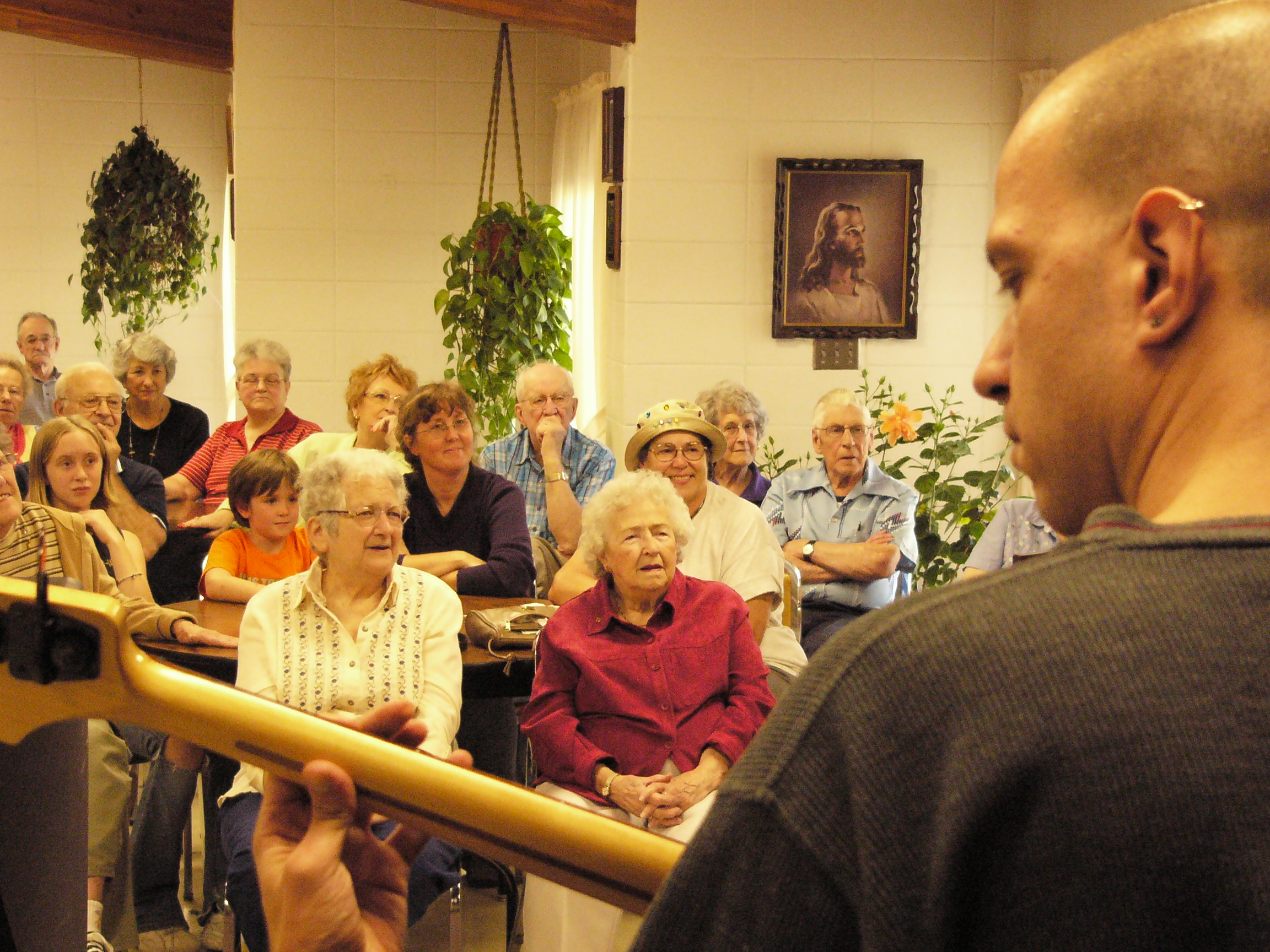World Fest was an artist residency program that toured world music ensembles to communities in the Midwest.
Every cycle, Arts Midwest worked with nine local partners in smaller Midwestern communities to host artists. Over the course of a year, two international ensembles would visit each community for weeklong residencies. Filled with school workshops, community visits, and celebratory public concerts, these residencies encouraged cultural appreciation, learning, and understanding.
Here’s what we learned along the way.
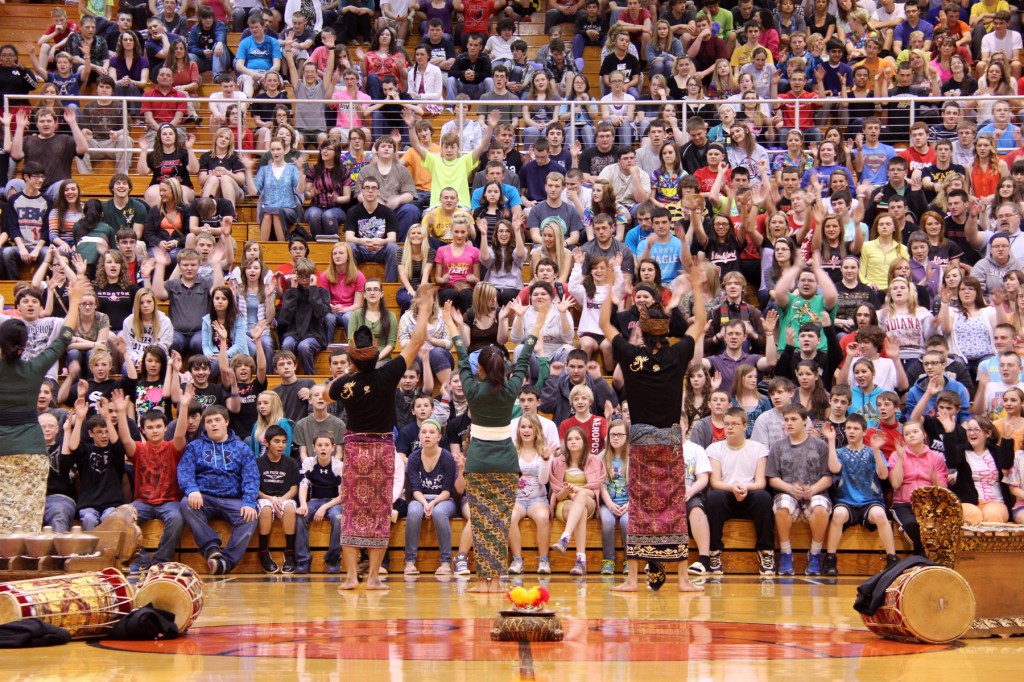
Celebrating 22 Years of World Fest
There’s a lot to celebrate about World Fest. Read more about how the program started and how it grew in our reflection piece.
Read MoreLessons Learned and Unlearned
Intercultural Exchange Thrives on Personal Connection
Connecting rural communities and international musicians always made for memorable experiences, sometimes in unexpected ways. Time and again, we saw how face-to-face connection fuels meaningful cultural exchange.
Community partners discovered new aspects of their town through the eyes of visiting artists. Students with ties to an ensemble’s home country saw themselves reflected on stage. And new relationships were created between local residents of all backgrounds as they connected through shared artistic experiences.
Snapshots of Shared Experience
Japanese ensemble Agatsuma visited Knoxville in the weeks following the devastating earthquake, tsunami, and nuclear disasters in Japan.
Bob Leonard, a community member from Knoxville, remarked “There was something very special about that night in Knoxville, perhaps because it was the group’s first performance after the tragedy in Japan. [Agatsuma] played in our middle school auditorium, but they played like they were at Carnegie Hall. People in Knoxville are still talking about it, and all of us that were lucky enough to be there feel a kind of kinship with each other, and with the group, in that we know we shared a very special night that we will remember forever.”
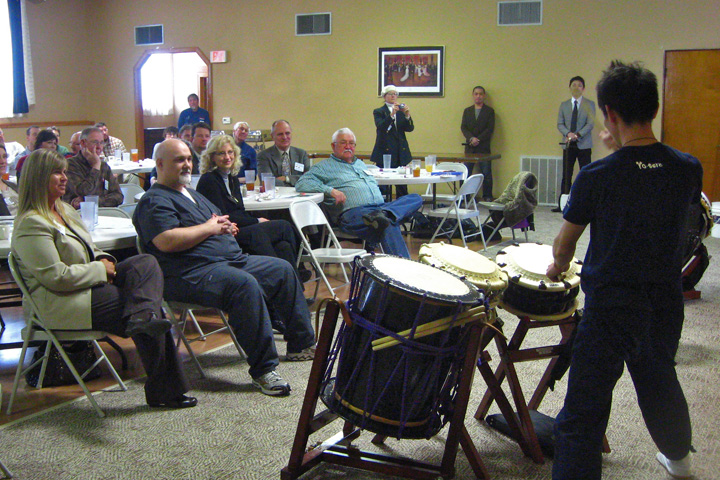
Balinese group Çudamani marched in the homecoming parade, waving at everyone they had met during the week and sharing their drumming as part of the important local tradition.
Community member Philip Graulty shared, “While the concert was a great success, the pinnacle moment of the week occurred on Saturday morning as they took part in the High School’s homecoming parade. The Balinese are no strangers to street processions so the group managed to fit right in, providing a unique accompaniment to myriad homecoming floats, farm tractors, and patrol cars parading through town. As Çudamani marched along the route, they waved their hellos and goodbyes to everyone they had met throughout the week. It was a perfect ending to their short but sweet visit to North Dakota.”
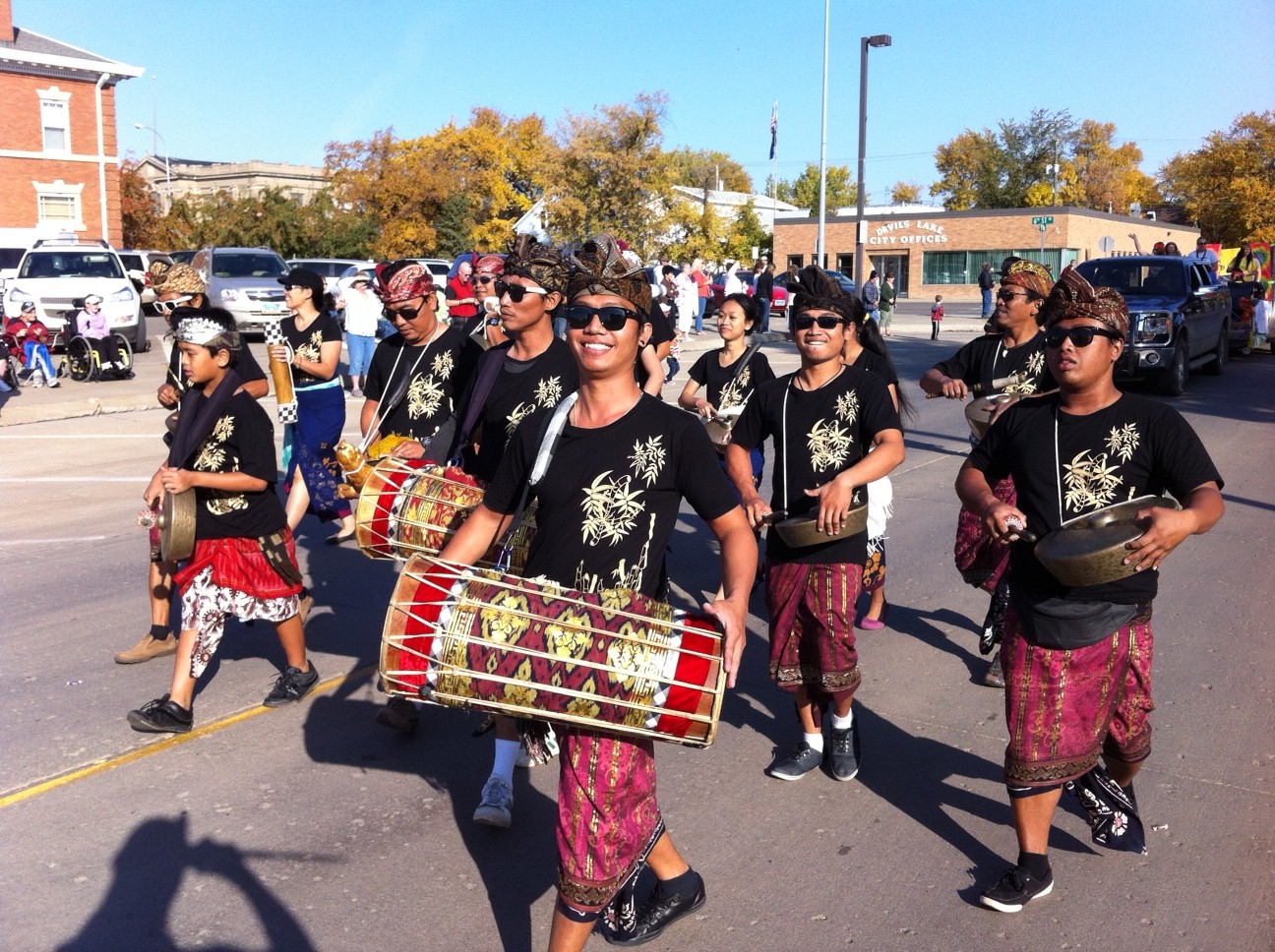
Ghanaian singer songwriter Okaidja Afroso was introduced to a school group by two children who had been adopted from Ghana and happened to speak the same language as Okaidja – especially serendipitous, given that over 80 languages are spoken in Ghana.
Sara Compton at the Iowa State Center said, “There was even an opportunity for two elementary students, originally from Ghana, to introduce the trio at their school. Their obvious sense of pride and belonging was wonderful to see and I’m sure it gave them new caché with their classmates. Learning about the world is about making connections. Okaidja certainly made connections through music, but it is telling and indicative of the very human connections they made on many levels that in many of the workshops, the questions also included favorite foods, etc.”
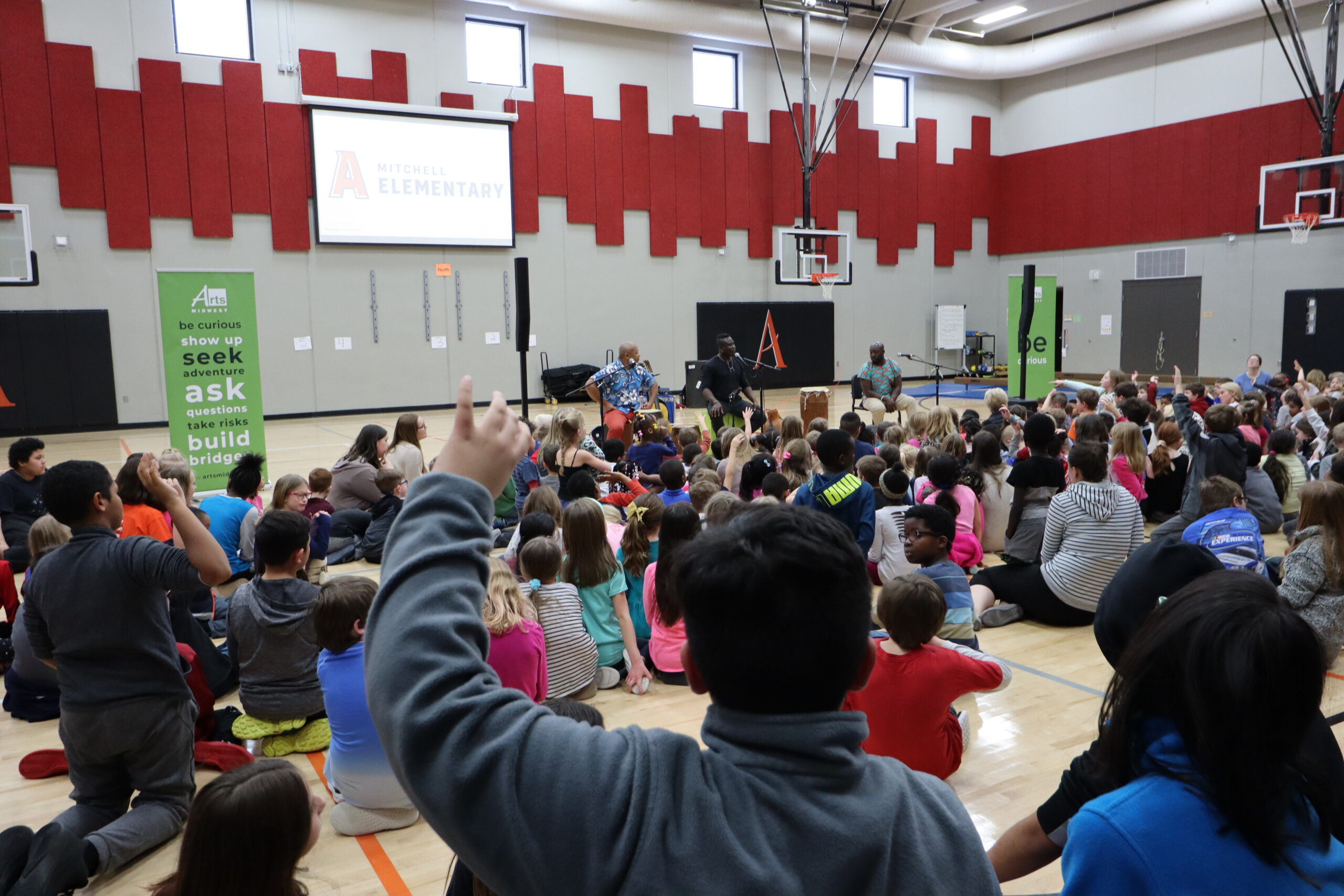
Taiwanese ensemble A Moving Sound had the opportunity to sit down and jam with local polka and bluegrass musicians.
Matt Friddell of the Custer Area Arts Council said, “ It is fascinating to watch the performers masterfully connect with the crowds and ease into connection, learning, and the energy of the crowd. Each performance is unique, and under their guidance the room changes and grows. Possibilities open up, kids find new things out about how they feel when they experience new music. It’s incredible to watch.”
![]()
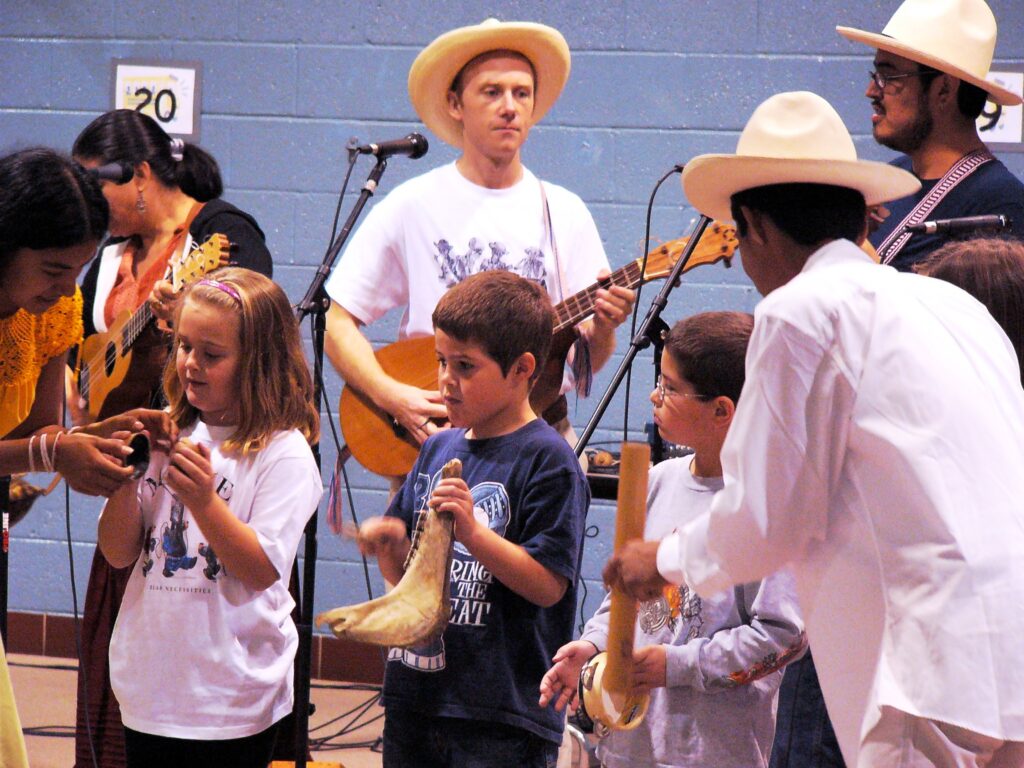
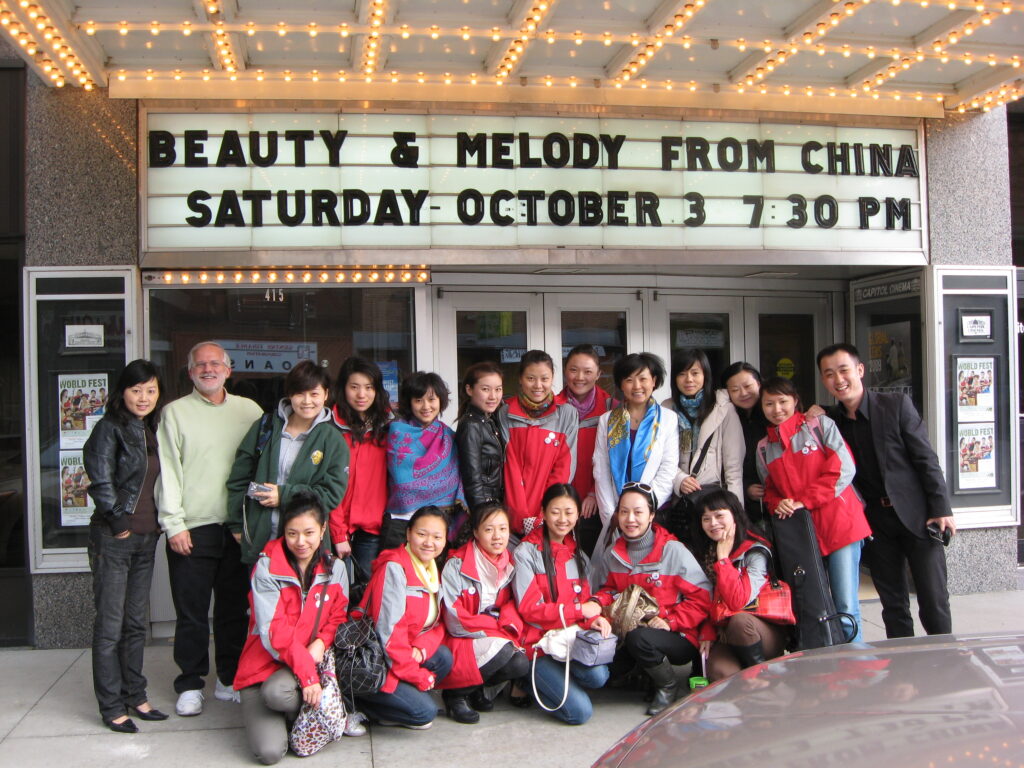
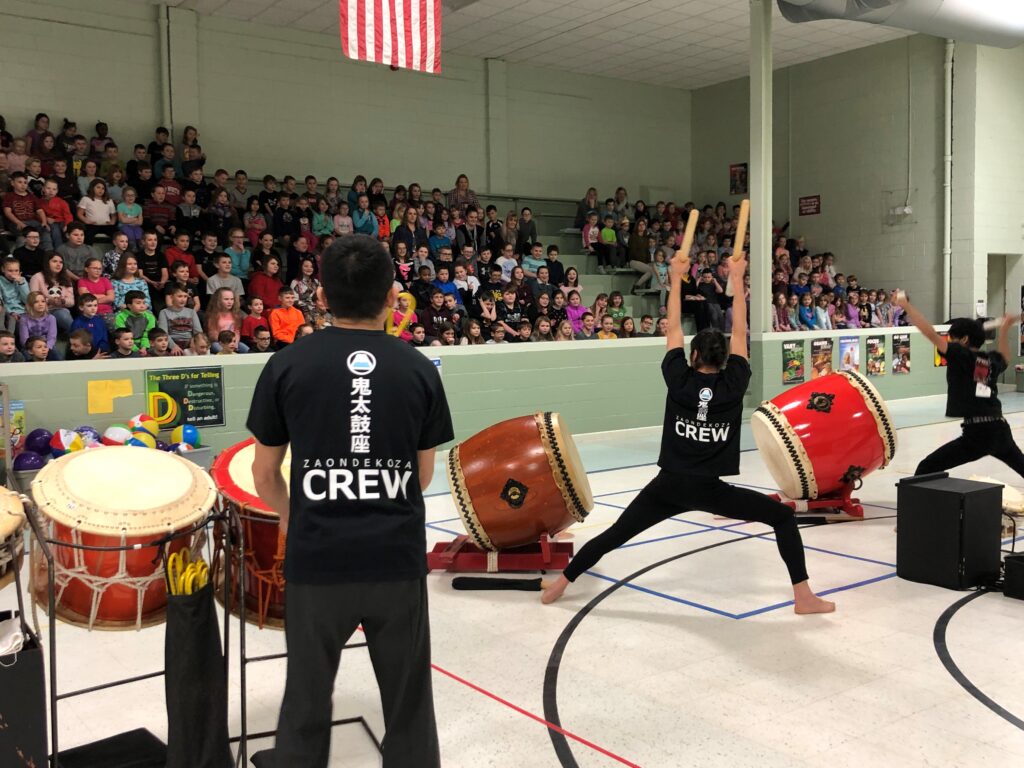
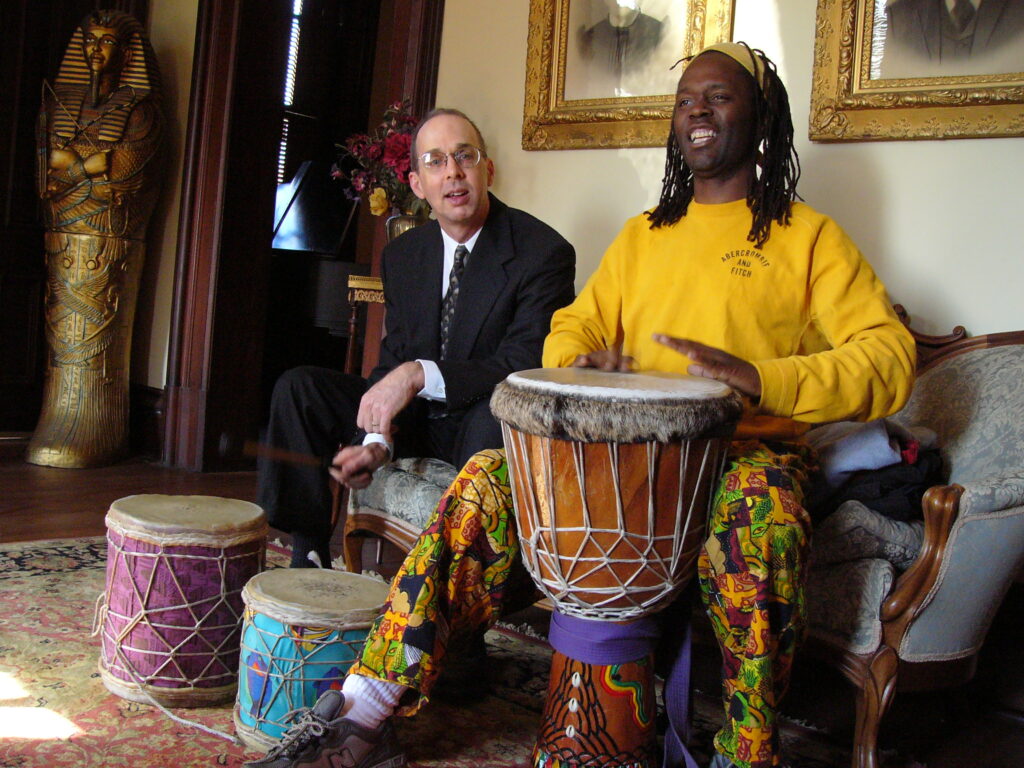
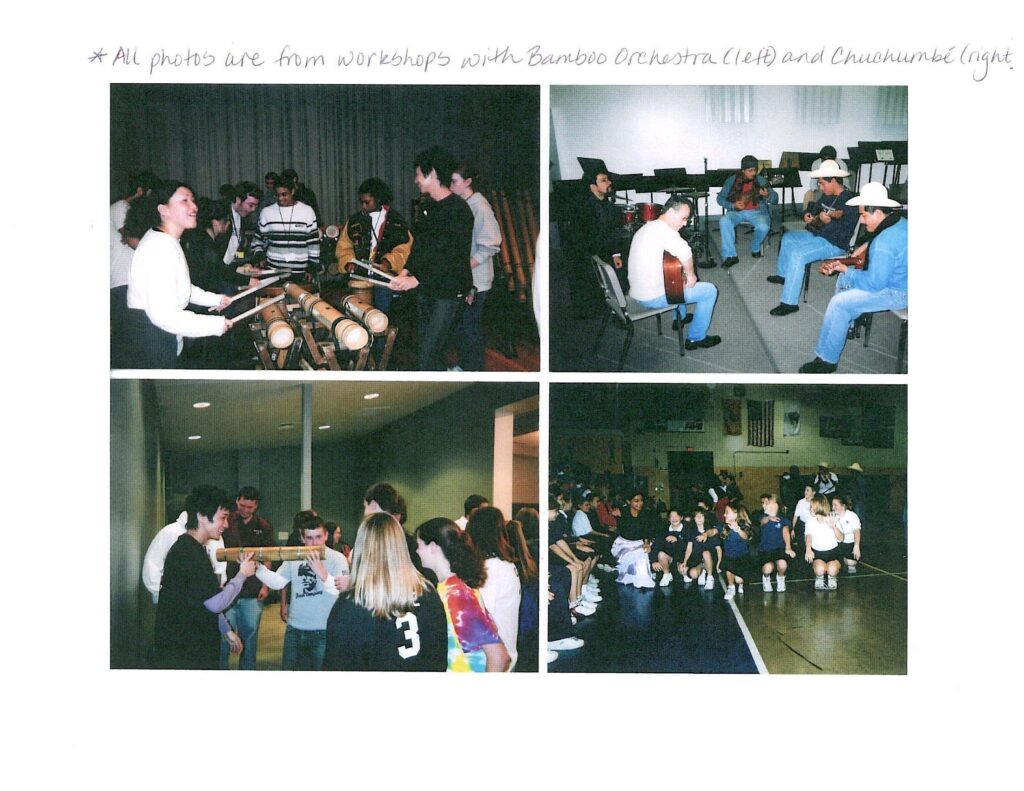
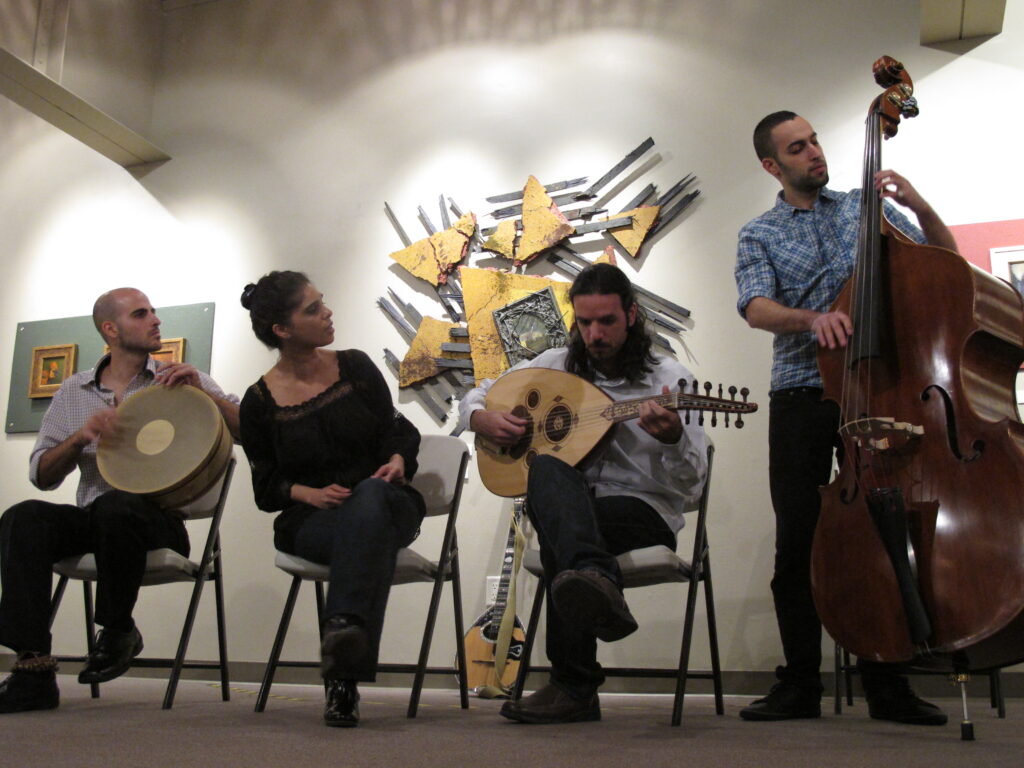
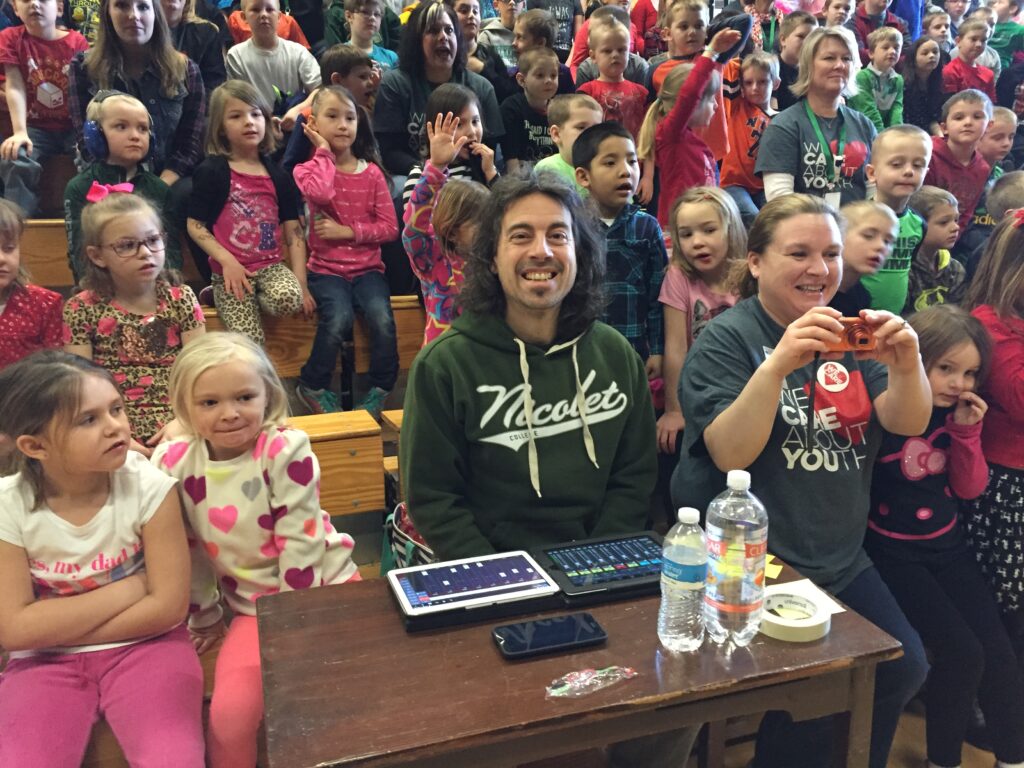
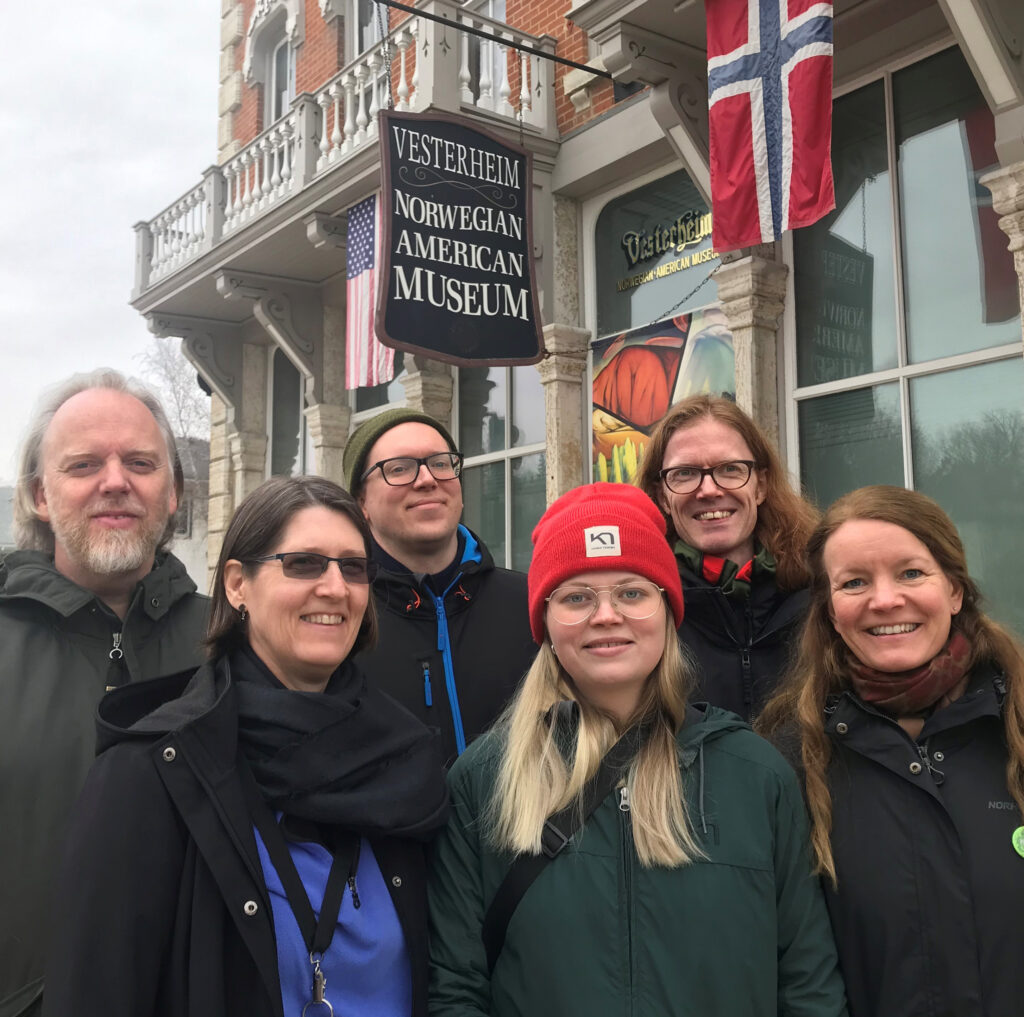
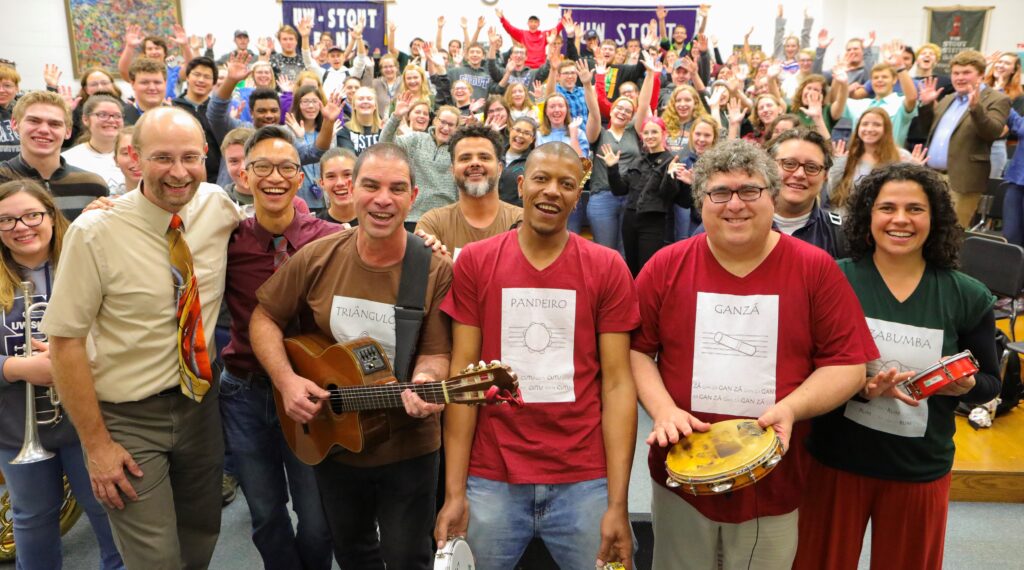
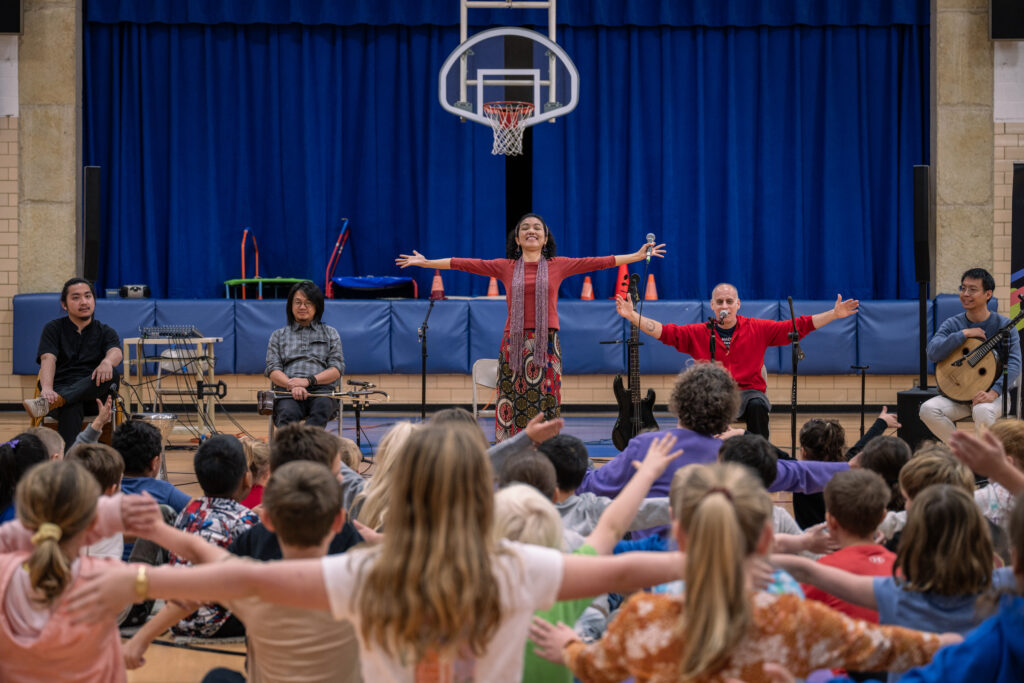
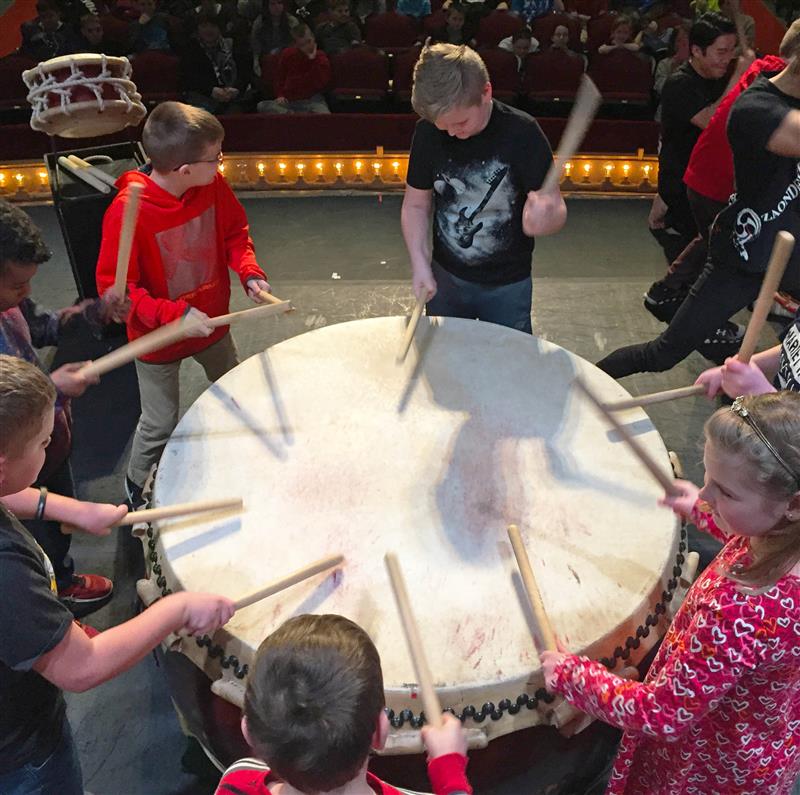
Adapting to Each Community Made the Program Stronger
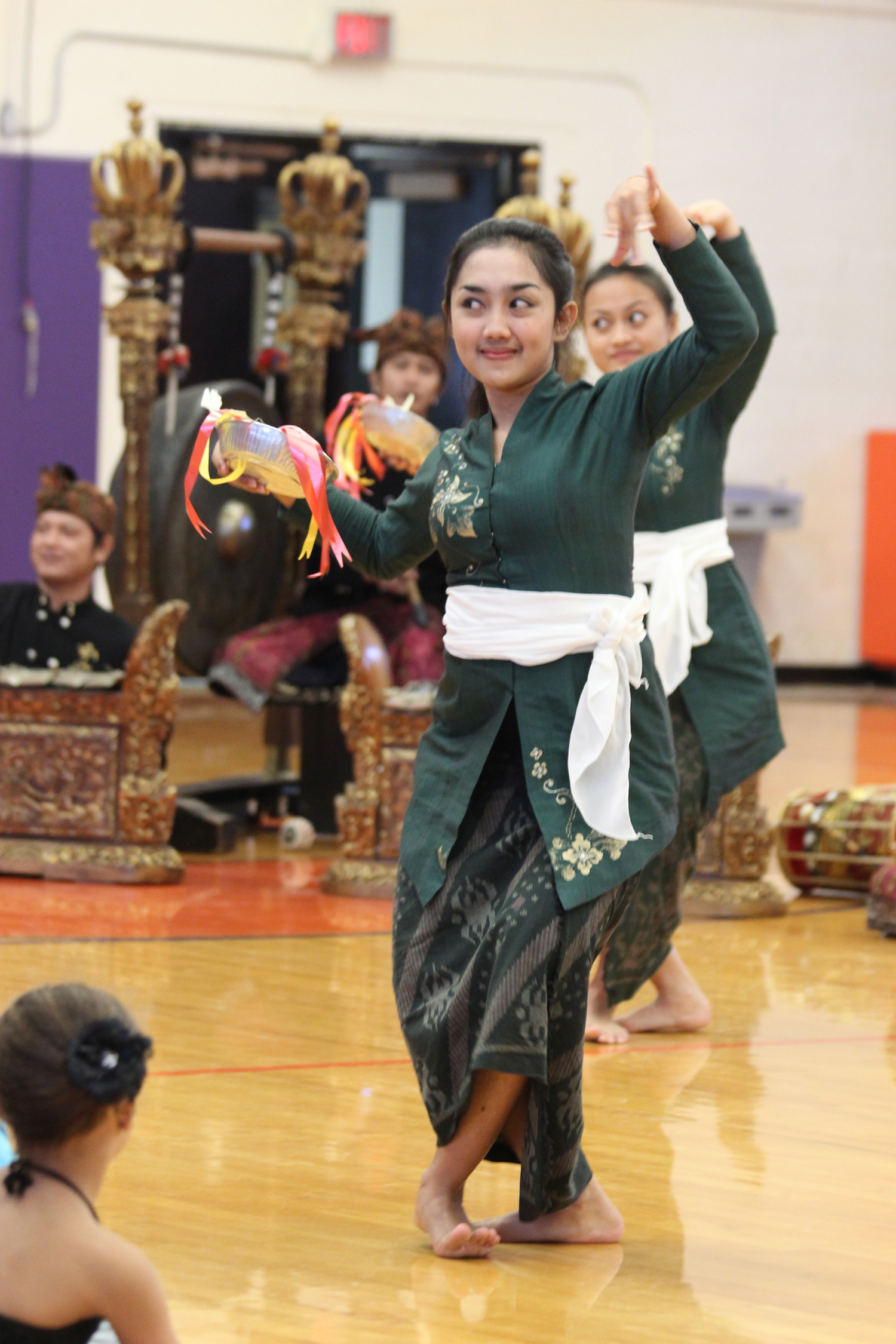
For each round of World Fest, we partnered with one organization in each of the nine states we work in throughout the region, with a focus on rural communities.
Each World Fest community was different, so each local partner customized their World Fest experience in different ways that reflected their unique context. Whether they were a theater regularly presenting performing acts, a local arts council, or a city government, each partner found creative ways to make the most of their residency week.
Each week included 10-12 community workshops and a public concert. This format allowed partner organizations to reach a wide section of their community without overwhelming the musicians. These workshops could take whatever form was the best fit for the community. Some chose all school assemblies, some focused on regional library outreach, some did more in-depth residency work with music students, and most did a combination of activities.
Having a flexible template also made it easier to fit ensemble needs and interests. Some communities offered cooking demonstrations, hands-on choral work, dance workshops, or other specialized activities. Most ensembles were eager to share their music and other elements of their culture in special ways.
But, working out all this customization and variation necessitated lots of care and attention on all ends.
Evolving Needs Called for New Ways of Working
Over the last 22 years, a constantly changing world meant World Fest had to stay nimble.
For much of the program’s history, Arts Midwest supported artists in securing visas by submitting petitions on their behalf. But over time, that process became increasingly difficult—timelines grew longer, costs went up, and uncertainty became the norm.
To keep the program running smoothly and focus more energy on working with communities, we stepped back from direct visa support and instead prioritized artists who already had visas, didn’t require one, or could obtain one independently.
We also streamlined tour logistics by bringing on dedicated tour managers to work directly with the ensembles. Because of the length, logistics, and number of details involved in keeping track of World Fest activities, this shift enabled Arts Midwest to focus more on working with local partners and facilitating meaningful connections between communities and ensembles.
When the pandemic hit, like everyone, we moved programming to the virtual world with World Fest Online, where we worked with ensembles to create educational video content, paired with study guides and activity prompts.
Flexibility kept the program moving forward, evolving with the needs of the moment.
-
February 17, 2021
Wisconsin Meets Brazil in Creative Music Video
By Audrey Tchaa
What happens when Wisconsin winter meets Brazilian carnaval celebration, all during a pandemic? You get a new music video for Brazilian artist Paulo Padilha’s song, “Outro Carnaval,” featuring students and faculty at the University of Wisconsin-Stout playing alongside musicians in São Paulo.
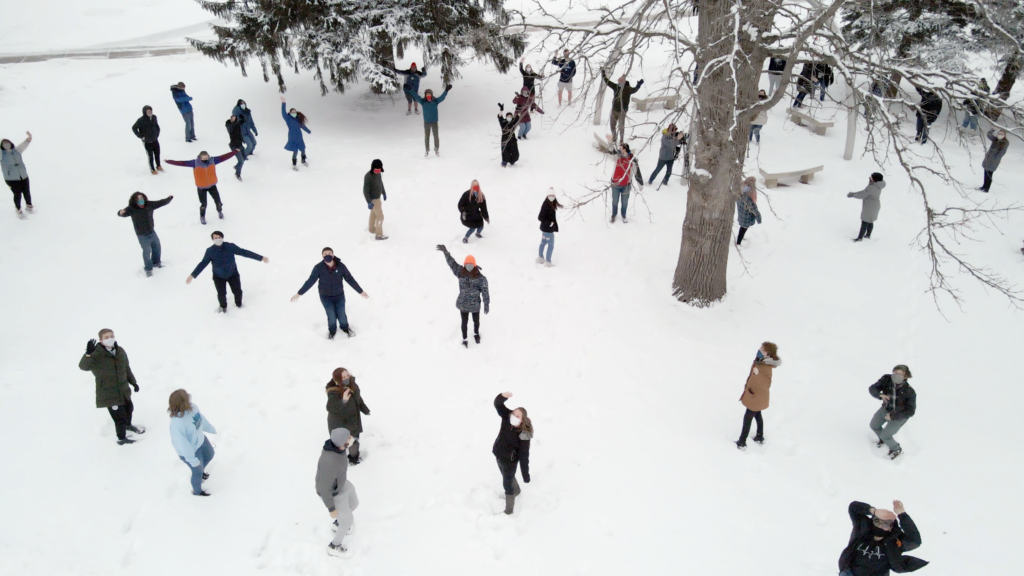
Communities Took on a Lot—and Built Something Lasting
The initial model of World Fest covered all artist fees, backline, and travel, offering communities a week’s worth of programming—but leaving them to shoulder lodging expenses and their staff time. That was a big lift, especially for mostly small, rural organizations.
And still, partners made it work. They juggled schedules, rallied volunteers, and brought their community together to make each residency possible.
In 2023, we introduced a Hub City model, where a group of World Fest communities helped select ensembles, coordinated tour details, and received compensation for their work. It was a step toward better recognizing the time, energy, and care asked by the program. Along the way, Arts Midwest shared templates, evaluation tools, and photo-documentation support so partners had practical resources to build on.
Working side-by-side across the Midwest helped communities build additional skills around hosting touring musicians, expanding community outreach, and planning together. That cohort approach has laid the groundwork for future block-booking opportunities and other network collaborations.
After coordinating multiple residencies over several years, many of our Hub City partners told us the work felt easier, and that they felt more equipped to keep going. From the latest cycle, 7 of the 10 community partners are actively working on planning their own music programming—proof that the effort they invested into World Fest is growing into something larger.
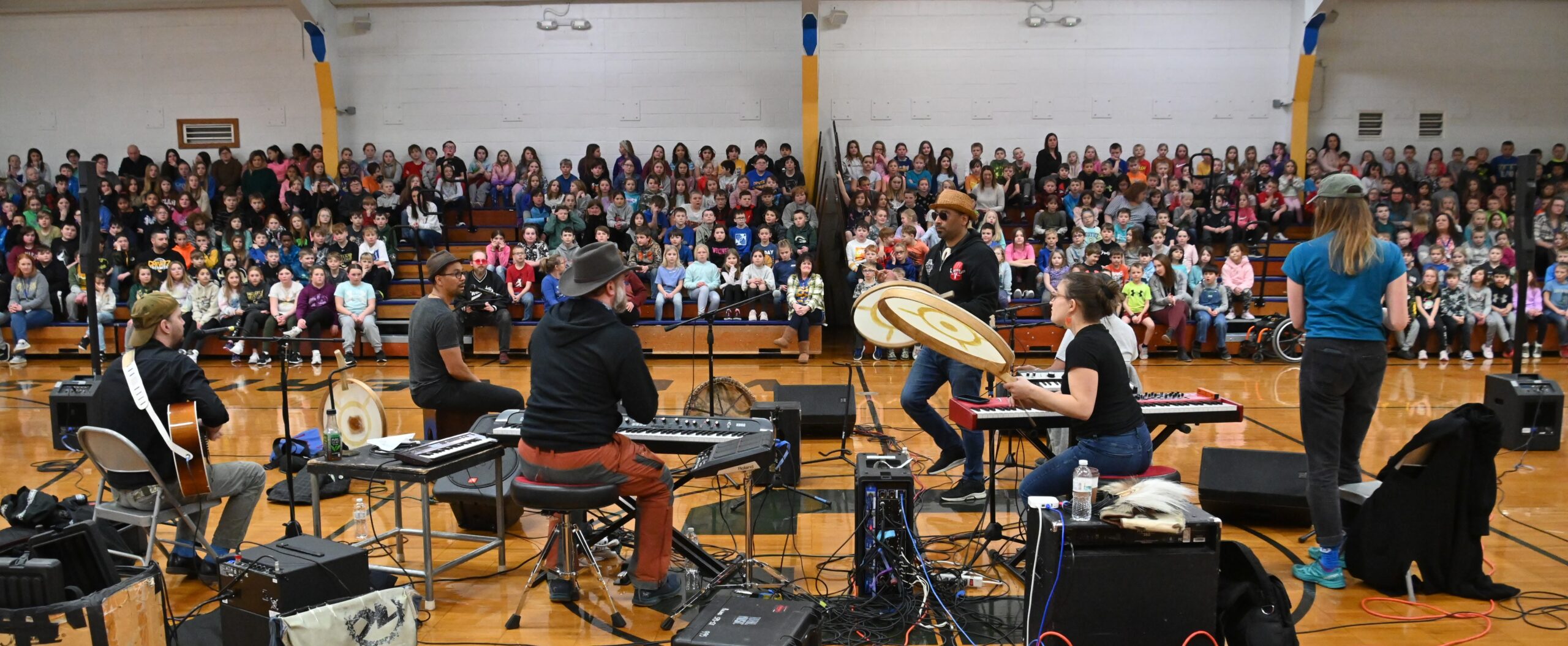
A Week in One Place Still Makes a Big Difference
Even as World Fest is sunsetting, we believe the basic model of week-long residencies in a rural community still holds a lot of value.
The week-long residency format keeps musician travel to a minimum while allowing for deeper local engagement locally. It alleviates some climate concerns that come with the frequent travel required from typical touring, where artists often hop from city to city with little time in between.
It also offers artists steady, reliable work. Instead of scrambling to fill gaps between shows, they spend several weeks moving through communities with a clear schedule and purpose. The pace is demanding, but efficient—and rewarding.
These tours also meets a real need in smaller towns. At many school assemblies, we heard from teachers and administrators that their students rarely had access to live music–with one school telling us they hadn’t had any live performance at the school in over 20 years.
But most of all, this format creates space for connection. Community members might run into the group at the grocery store or coffee shop and then see them at their church the next evening. Many times, students would bring their whole family to the groups’ concerts after seeing them at their school earlier in the week.
And for many rural Midwesterners, the world felt a little smaller thanks to World Fest programming.
Conclusion
Since World Fest began in 2003, the world has changed—but the need for connection and cultural exchange remains.
Over the years, the landscape for presenting and touring has shifted dramatically. And while the World Fest model offers deep impact, it also came with real complexity in the form of visas, travel logistics, rising costs, and strain on community partner capacity.
We still believe in what made World Fest meaningful: time spent in place, relationships built face-to-face, and the kind of learning that can take place when people share space, stories, and sound.
As we look ahead, we’re thinking about how to carry those values forward in new ways. That might mean offering more flexible grants for communities to design their own residencies, connecting cohorts of organizations, or creating tools and resources to support exploration of global cultures.
We’re so proud of what World Fest made possible, and excited to see what comes next.
Read World Fest Stories
-
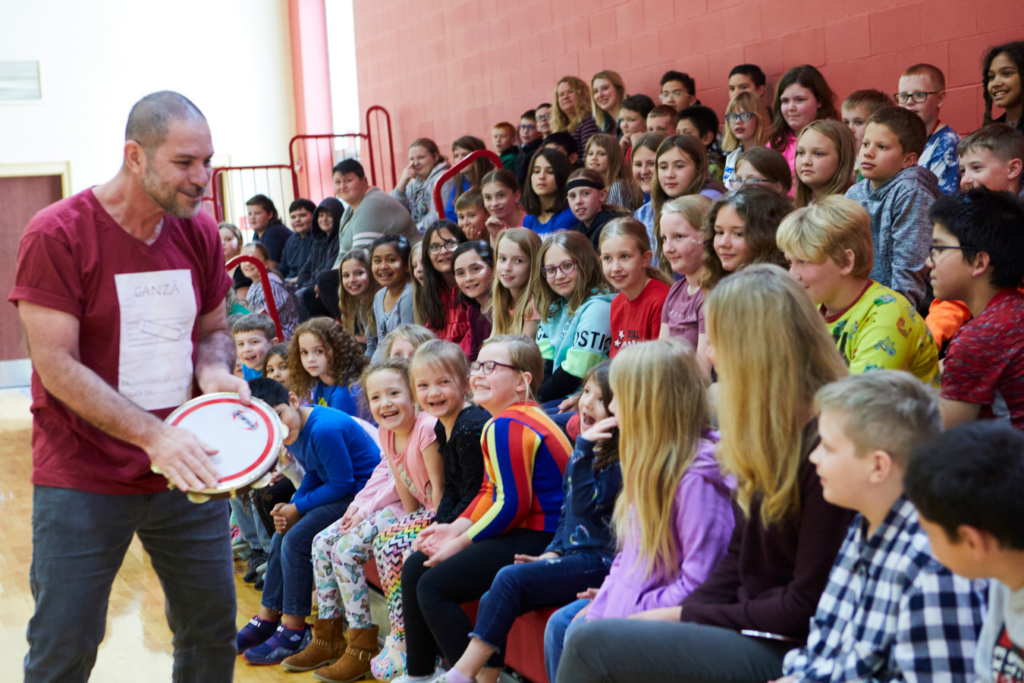
In Rushville, Indiana, Art is Welcoming New Futures
June 6, 2022
As Rushville, Indiana celebrates its 200-year anniversary, residents in this rural city are focusing on art, creativity, and community to lay the path forward for the future.
-
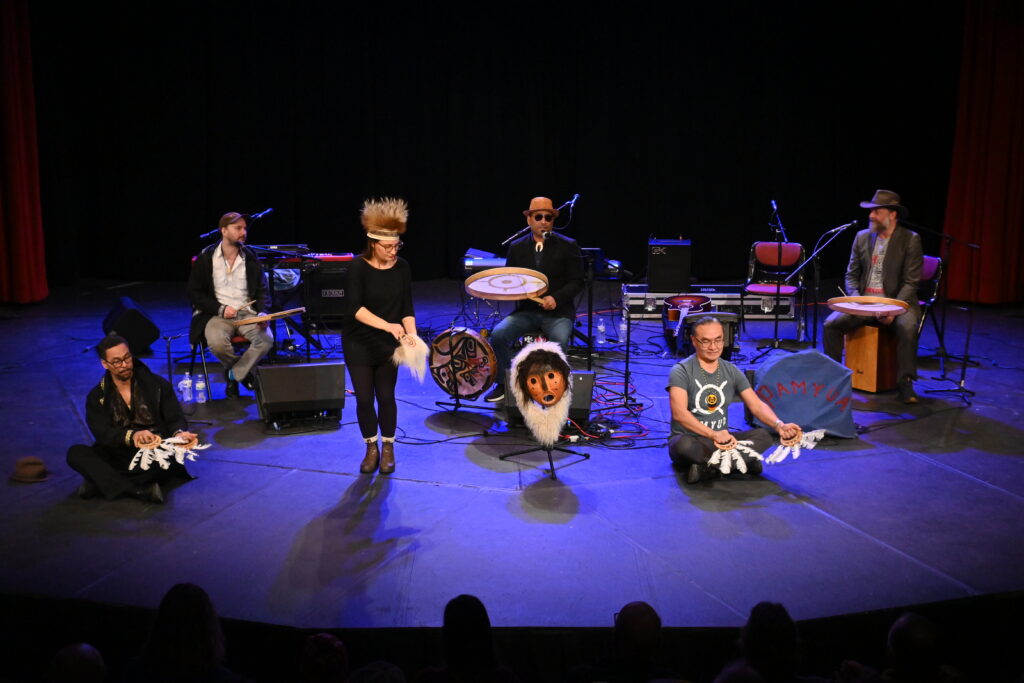
Cross-Cultural Exchange: Inuit Music in the Midwest
March 29, 2023
The music of Alaskan ensemble Pamyua moved communities in rural Wisconsin and Michigan, creating “one-in-a-lifetime” moments of connection, collaboration and curiosity.
-
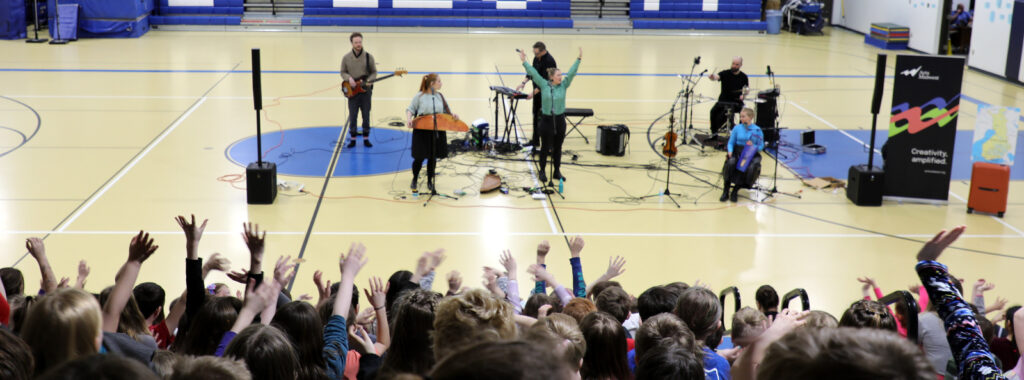
The Black Hills Are Alive With Finnish Music
May 4, 2023
Finnish music sensation Okra Playground brought its captivating and charming sound to South Dakota, connecting cultures through music.
-
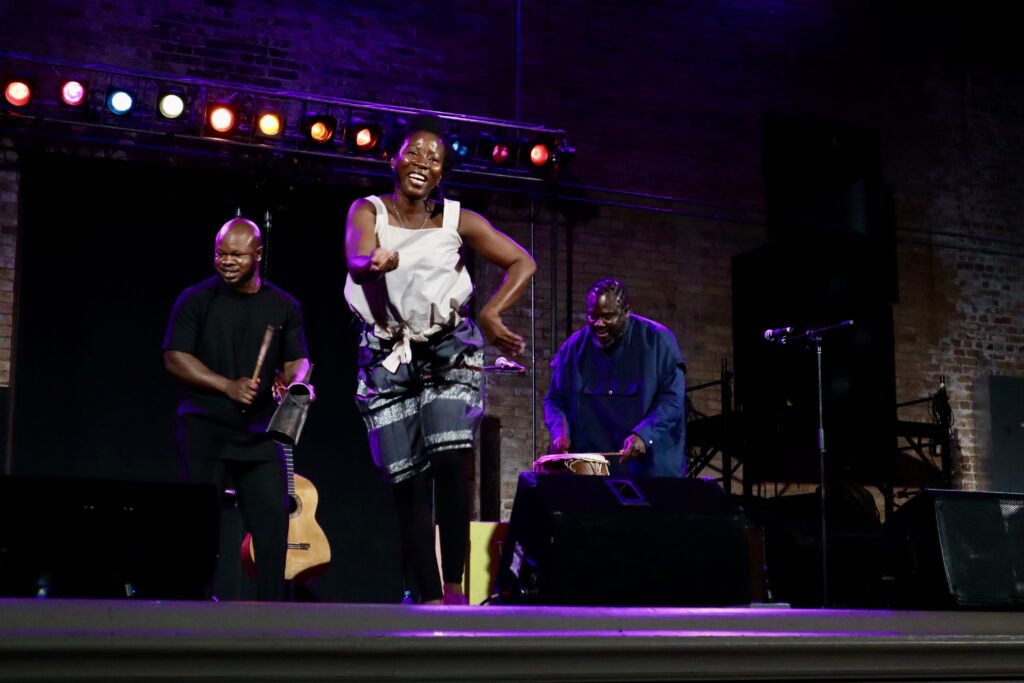
Ghanaian Music Moves Rural Michigan
August 16, 2023
Okaidja Afroso’s week-long World Fest residency brought music into schools, stores, and a Main Street theater, spreading connection and curiosity in small town Albion.
-
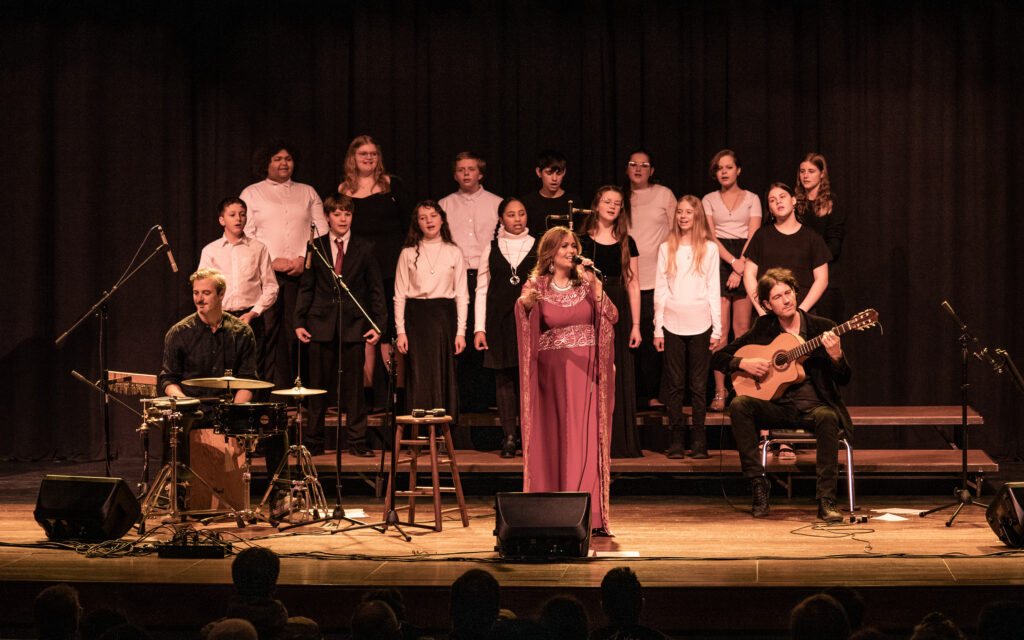
Small Town, Global Stage: Farah Siraj Offers Up Artistic Exchange in Iowa
March 25, 2024
How Jordan’s “Musical Ambassadress” teamed up with Oskaloosa’s local choir for a week of cultural exchange and learning.
-
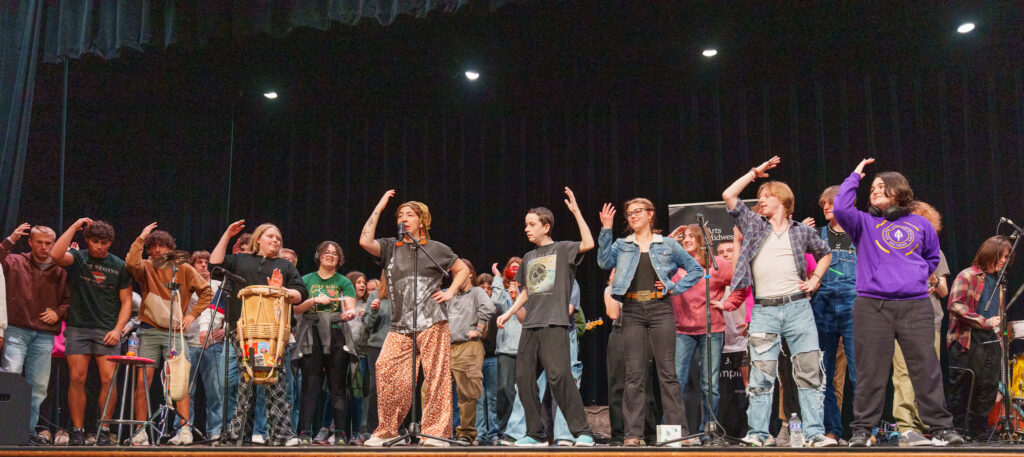
After a Tornado, a Rural Indiana City Finds Connection Through Music
May 20, 2025
Two years after a deadly tornado, Sullivan, Indiana welcomed global ensemble LADAMA for a week of music and cross-cultural connection.
